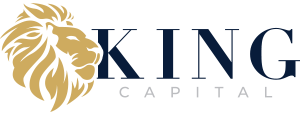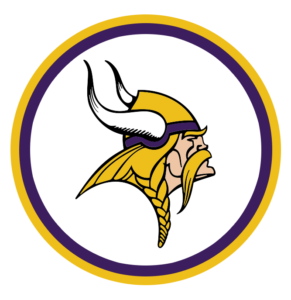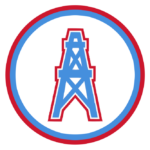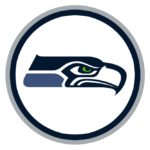- Call Us Now
- (888) 811-6101
- info@kingcapitalnyc.com
3 Valuable Business Lessons Inspired by NFL Franchises

Effective Strategies to Boost Your Cash Flow This Holiday Season
November 7, 2024When most people think about the NFL, their minds go straight to their favorite teams, star players, or the excitement of game day—not the business powerhouse that operates behind the scenes. Yet, the NFL is one of the most successful and profitable business entities in the world. Generating $9 billion annually and ranking first among professional sports leagues with an impressive $11.4 billion in revenue, the NFL far outpaces its competitors in both scale and profitability.
This level of success didn’t happen overnight. Over decades, the NFL has grown into a dominant force through careful strategic planning, bold innovation, and an unparalleled ability to adapt to changing times. For business owners, the NFL’s journey offers a treasure trove of lessons on how to scale growth, overcome challenges, and build a thriving and sustainable operation. Below, we explore three key takeaways from NFL franchises that can help businesses of any size achieve their full potential.
 Identify and Remove Revenue Roadblocks
Identify and Remove Revenue Roadblocks
The story of the Minnesota Vikings is a prime example of how tackling obstacles head-on can unlock untapped revenue potential. Despite their strong on-field performance, the Vikings faced a significant challenge off the field: financial struggles. For years, they ranked near the bottom of the NFL’s revenue list. The culprit? Their outdated stadium, the Metrodome, which was too small and lacked the modern amenities needed to generate substantial income from ticket sales, concessions, sponsorships, and other revenue streams.
Recognizing the issue, the Vikings decided to make a bold move. After playing their final game at the Metrodome in 2013, they began building U.S. Bank Stadium, a state-of-the-art venue designed to enhance the fan experience and maximize revenue. The investment paid off, as the new stadium propelled the Vikings’ revenue to new heights, making them one of the more financially stable teams in the league.
For business owners, the takeaway is clear: identify the factors limiting your growth and address them head-on. Is it outdated equipment, limited facilities, or insufficient resources holding your business back? Conduct a comprehensive analysis of your operations to pinpoint these bottlenecks. Then, take targeted actions to resolve them. Just like the Vikings invested in a new stadium to boost their performance, consider whether upgrading your tools, improving your workspace, or expanding your offerings could help your business grow sustainably and consistently.
 Don’t Be Intimidated by Bigger Competitors
Don’t Be Intimidated by Bigger Competitors
When the Houston Texans joined the NFL in 2002 as the youngest franchise, they were immediately thrown into the deep end, competing against powerhouse teams like the Dallas Cowboys, one of the most valuable and recognizable brands in sports. Despite being the new kid on the block, the Texans didn’t let their inexperience or the competition intimidate them. Instead, they embraced the challenge and worked hard to establish themselves as a competitive force in the league. Over time, they built their own identity, cultivated a loyal fan base, and proved they could stand tall alongside the giants.
This mindset is a vital lesson for small businesses facing competition from larger, more established companies. While it’s easy to feel overshadowed by big industry players with greater resources, businesses of all sizes have unique strengths they can rely on to stand out. Success often comes down to understanding what makes your business different and using that differentiation to carve out your own space in the market. Whether it’s delivering more personalized customer service, offering innovative products, or focusing on a niche audience, your ability to leverage your strengths can make all the difference.
The Texans’ story proves that being small doesn’t mean being outmatched. In fact, smaller businesses often have the agility and creativity to compete in ways larger companies cannot. By staying focused, playing to your strengths, and maintaining confidence in your unique value, you can build a strong foundation for growth and long-term success.
 Build Strong Relationships with Your Customers
Build Strong Relationships with Your Customers
The Seattle Seahawks have set a gold standard when it comes to engaging with their fans. One of their most successful initiatives is the “12th Man” tradition, which celebrates the fans as an integral part of the team’s success. By retiring the No. 12 jersey and raising the “12th Man” flag during games, the Seahawks show their fans that they are more than spectators—they’re part of the team. This act of inclusion and appreciation has fostered incredible fan loyalty and turned the Seahawks into one of the most beloved teams in the NFL.
For businesses, the lesson is simple but powerful: invest in building meaningful relationships with your customers. Your customers should feel like they’re an integral part of your brand’s story. Regularly engage with them, listen to their feedback, and show them that their support matters. You can gather input through surveys or reviews and then openly act on their suggestions to improve your offerings. Celebrate milestones with your customers by offering exclusive discounts, hosting events, or personalizing the experience with special offers on birthdays or anniversaries.
A loyal customer base is one of the most valuable assets a business can have. Just as the Seahawks’ “12th Man” tradition has solidified their connection with fans, genuine appreciation and engagement with your customers can lead to long-term loyalty, referrals, and sustainable growth.
Final Thoughts
The NFL’s unparalleled success comes from a combination of strategic innovation, bold decision-making, and its ability to connect with its audience on a deep personal level. These principles are just as relevant for businesses as they are for sports franchises. By identifying growth barriers, confidently competing against larger rivals, and building strong relationships with your customers, you can create a thriving business that stands the test of time. Take a page from the NFL’s playbook, and you’ll be well on your way to achieving sustained growth and success in your own field.


 Identify and Remove Revenue Roadblocks
Identify and Remove Revenue Roadblocks Don’t Be Intimidated by Bigger Competitors
Don’t Be Intimidated by Bigger Competitors Build Strong Relationships with Your Customers
Build Strong Relationships with Your Customers

